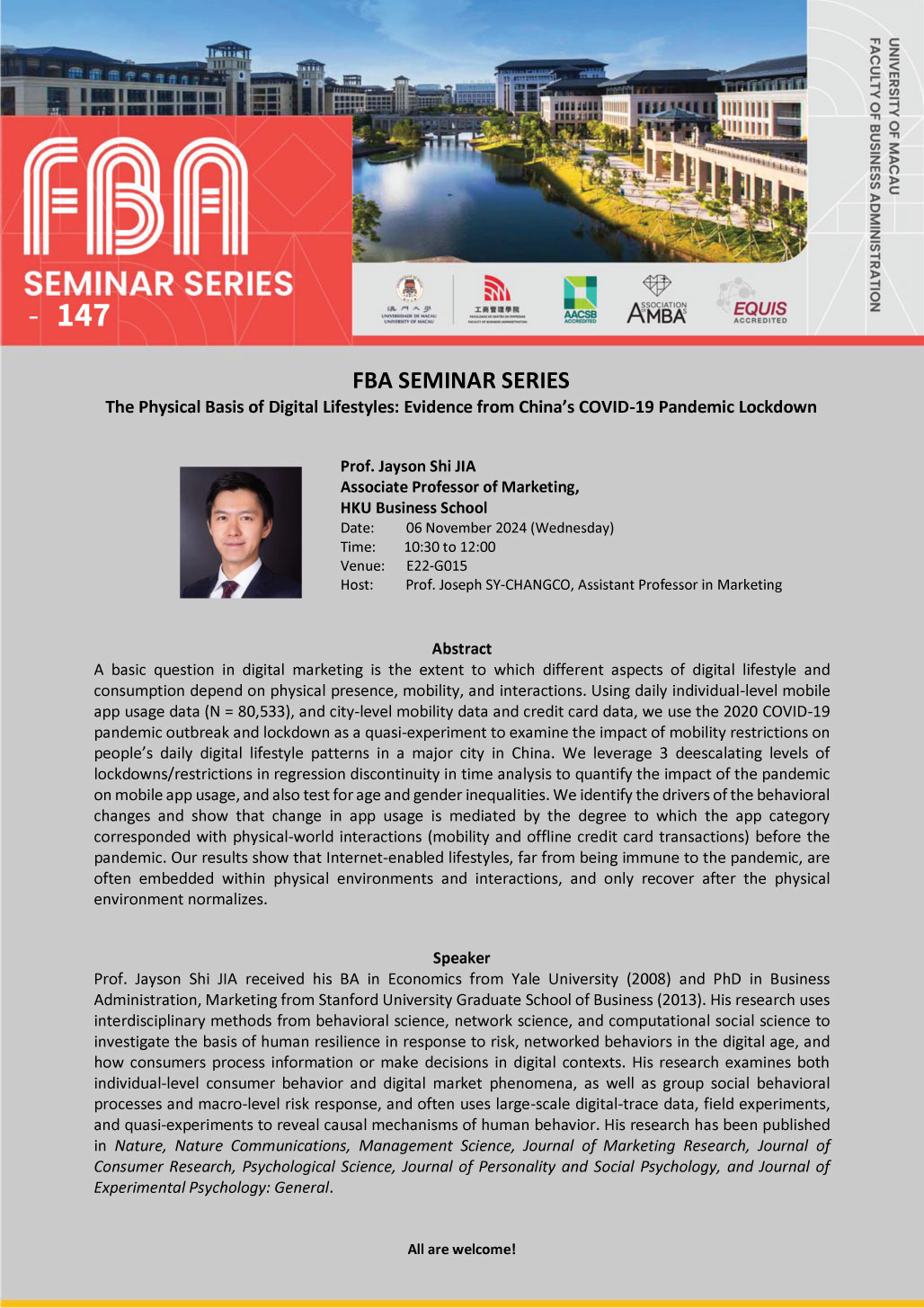The Physical Basis of Digital Lifestyles: Evidence from China’s COVID-19 Pandemic Lockdown
Prof. Jayson Shi JIA
Associate Professor of Marketing,
HKU Business School
Date: 06 November 2024 (Wednesday)
Time: 10:30-12:00
Venue: E22-G015
Host: Prof. Joseph SY-CHANGCO, Assistant Professor in Marketing
Abstract
A basic question in digital marketing is the extent to which different aspects of digital lifestyle and consumption depend on physical presence, mobility, and interactions. Using daily individual-level mobile app usage data (N = 80,533), and city-level mobility data and credit card data, we use the 2020 COVID-19 pandemic outbreak and lockdown as a quasi-experiment to examine the impact of mobility restrictions on people’s daily digital lifestyle patterns in a major city in China. We leverage 3 deescalating levels of lockdowns/restrictions in regression discontinuity in time analysis to quantify the impact of the pandemic on mobile app usage, and also test for age and gender inequalities. We identify the drivers of the behavioral changes and show that change in app usage is mediated by the degree to which the app category corresponded with physical-world interactions (mobility and offline credit card transactions) before the pandemic. Our results show that Internet-enabled lifestyles, far from being immune to the pandemic, are often embedded within physical environments and interactions, and only recover after the physical environment normalizes.
Speaker
Prof. Jayson Shi JIA received his BA in Economics from Yale University (2008) and PhD in Business Administration, Marketing from Stanford University Graduate School of Business (2013). His research uses interdisciplinary methods from behavioral science, network science, and computational social science to investigate the basis of human resilience in response to risk, networked behaviors in the digital age, and how consumers process information or make decisions in digital contexts. His research examines both individual-level consumer behavior and digital market phenomena, as well as group social behavioral processes and macro-level risk response, and often uses large-scale digital-trace data, field experiments, and quasi-experiments to reveal causal mechanisms of human behavior. His research has been published in Nature, Nature Communications, Management Science, Journal of Marketing Research, Journal of Consumer Research, Psychological Science, Journal of Personality and Social Psychology, and Journal of Experimental Psychology: General.
All are welcome!


